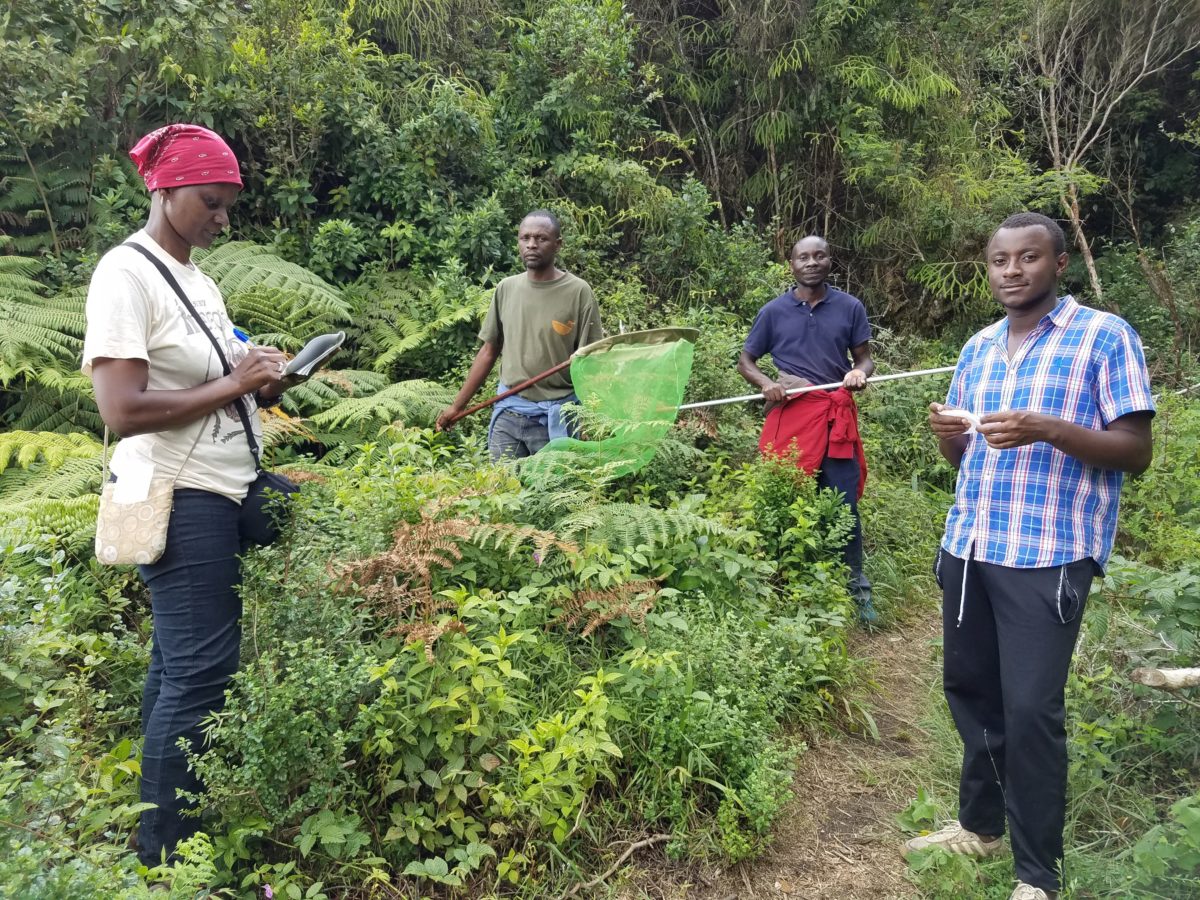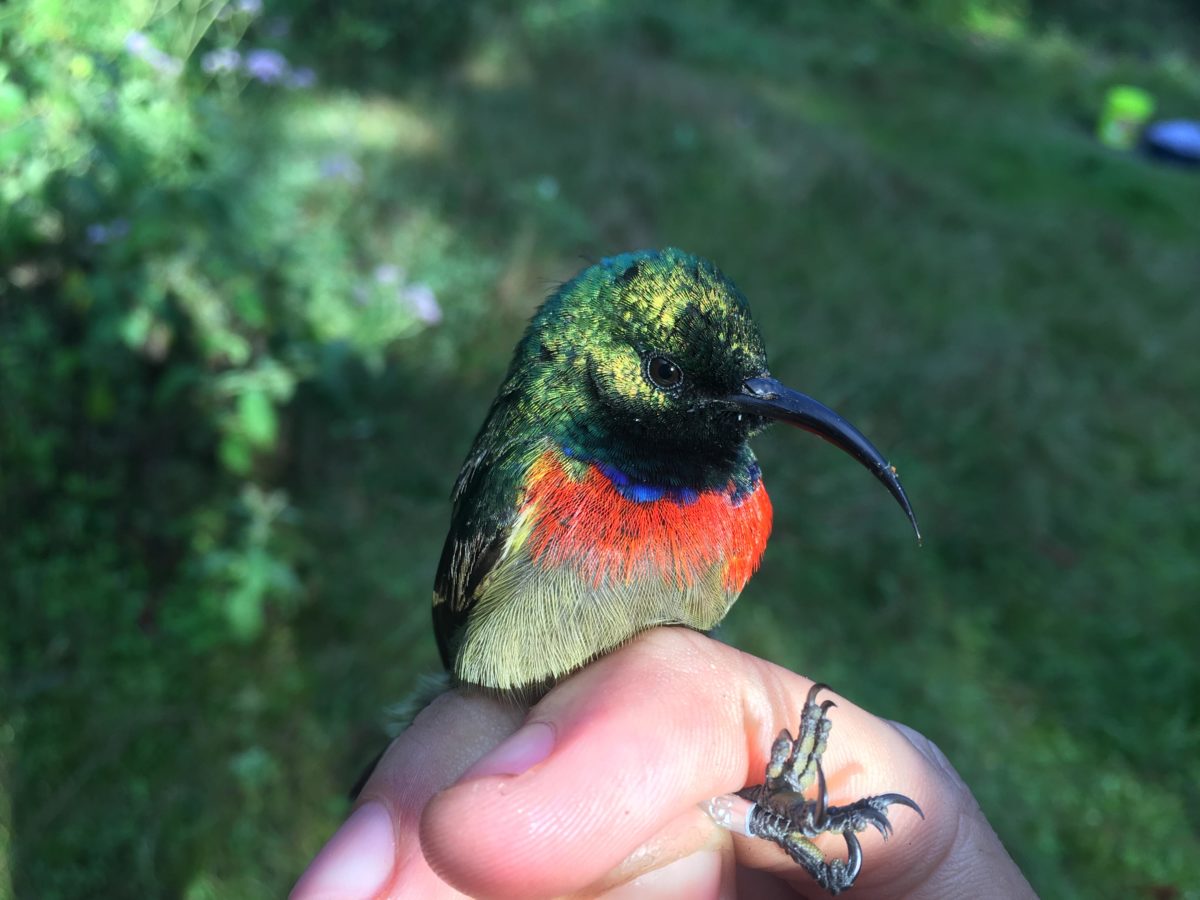In 2018, the Tanzania Wildlife Research Institute’s (TAWIRI’s) JRS-funded project, Assessing Landscape Level Impacts of Climate Change on Montane Forest Pollinators in Tanzania, set out to develop and publish a web portal where climatic, elevational range, and demographic data on flower-pollinators could be shared with the public and decision-makers to inform future conservation actions. Butterflies and birds are two of the more important flower‐pollinating taxa in montane forests in Africa, and in the Eastern Arc Mountains of Tanzania where this project is focused, nearly a third of butterfly species are flower‐pollinators.
JRS is happy to report great progress by TAWIRI and their partners in this effort to protect a vital ecosystem service. Nearly 2,000 species occurrence records for butterflies and birds from field-based surveys and historical records are now available on the Bionuwai Portal, and 33 senior staff and technicians have received training in field survey techniques, data collection, and database management, ensuring project sustainability.
Most exciting is TAWIRI’s identification of a new partner to support the creation of a corridor in the West Usambara Mountains. One of the long-term goals of this project is the uptake of mobilized pollinator data in decisions that identify and conserve important forest linkages, and this corridor will connect the two largest and closest forest fragments in the Magamba Nature Reserve.

This grant is one of the investments under the JRS Pollinator Biodiversity and Services Program, which aims to increase access to pollinator biodiversity data to support agricultural productivity and conservation. Visit Our Grants for all of our investments in biodiversity informatics in sub-Saharan Africa.

